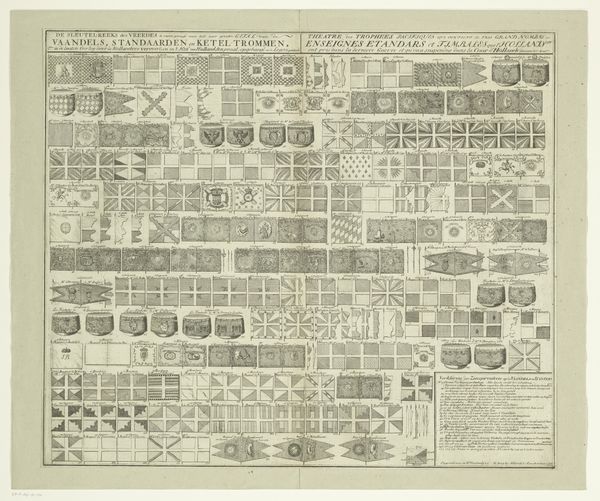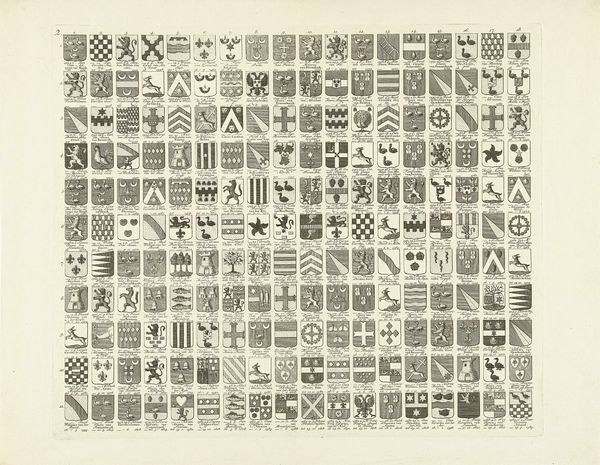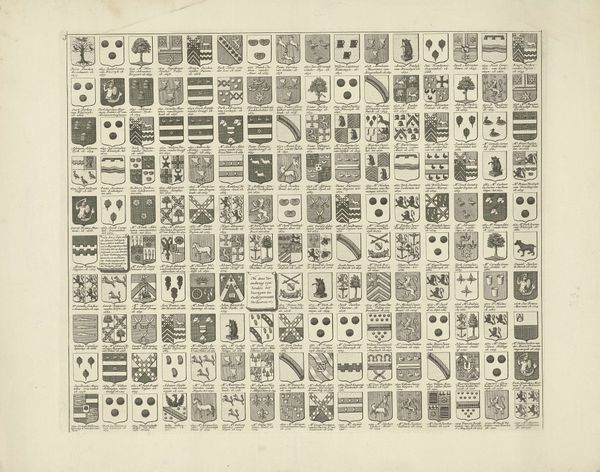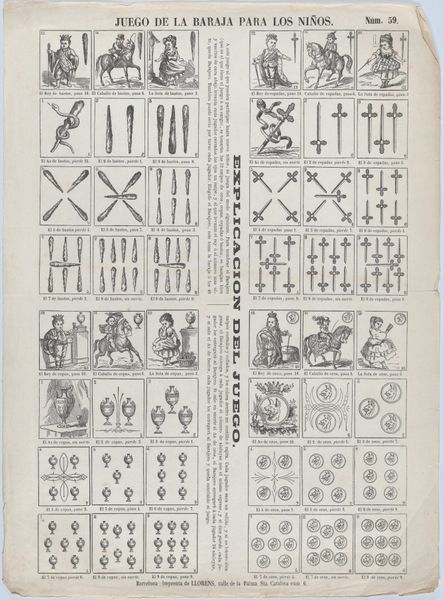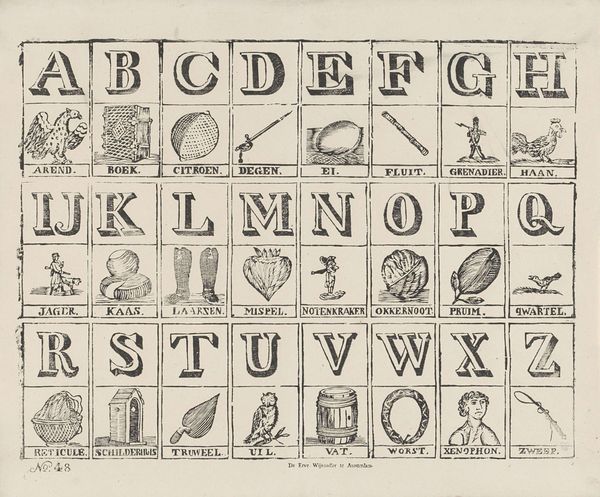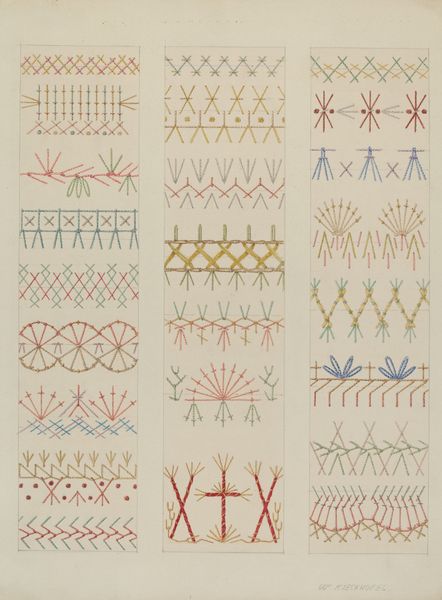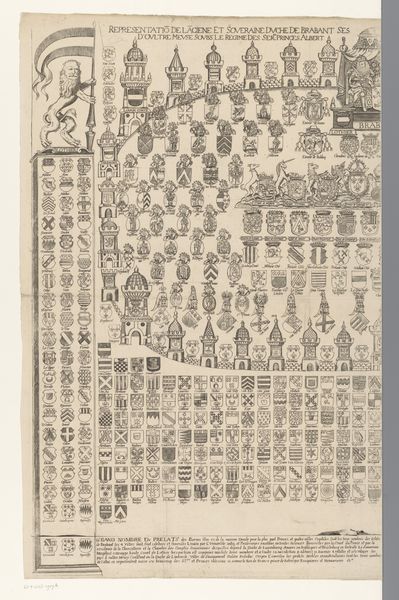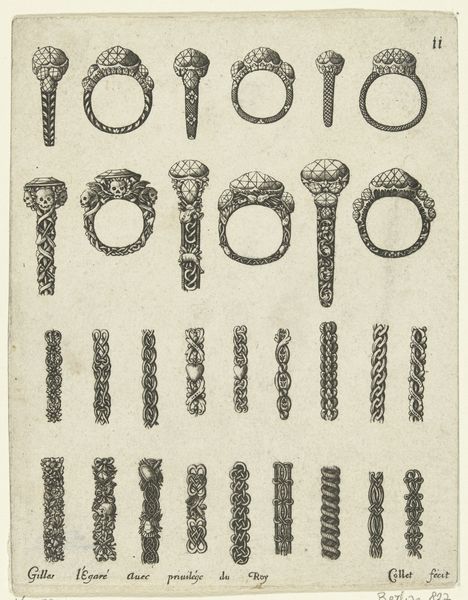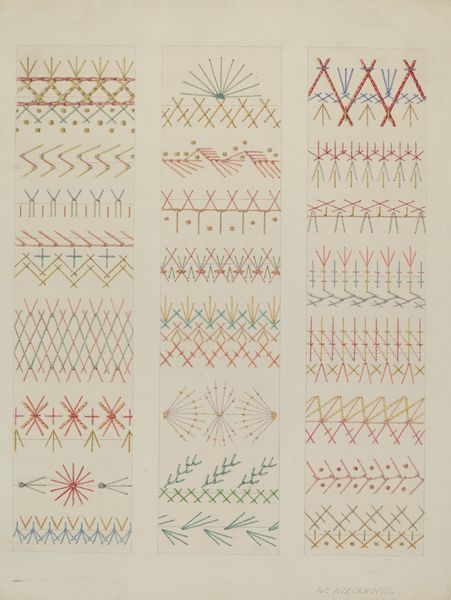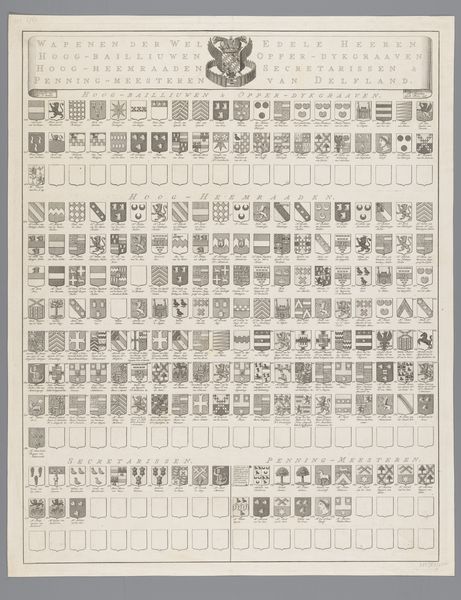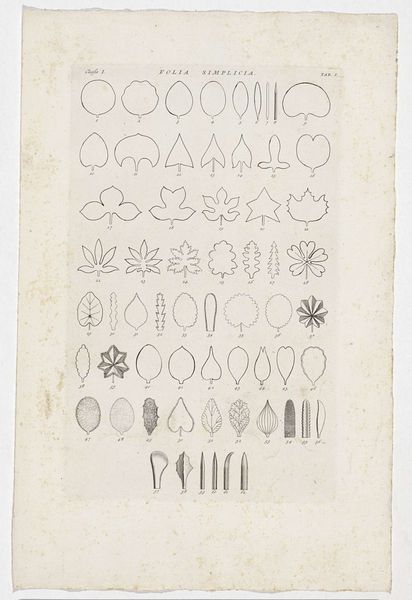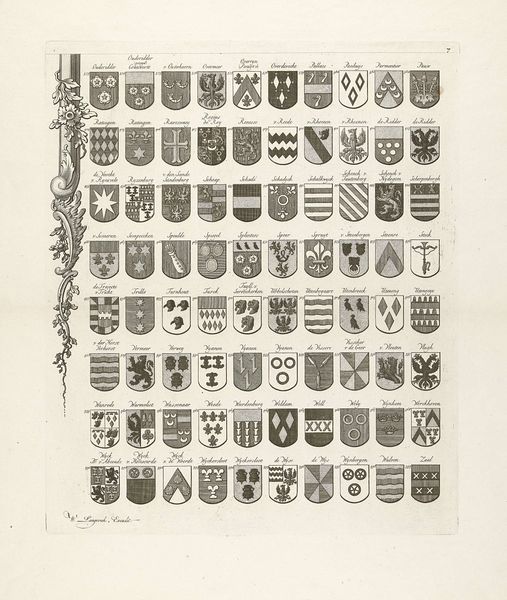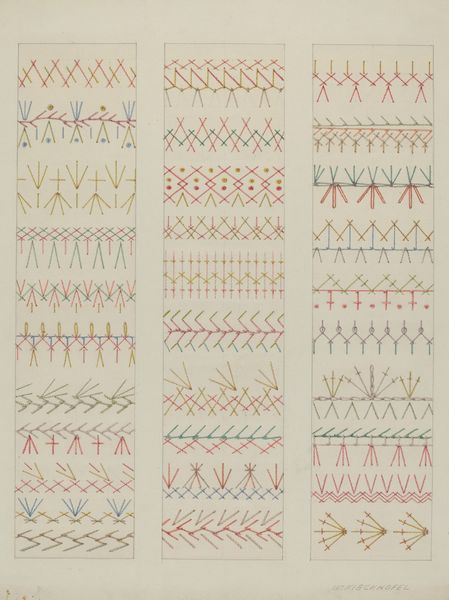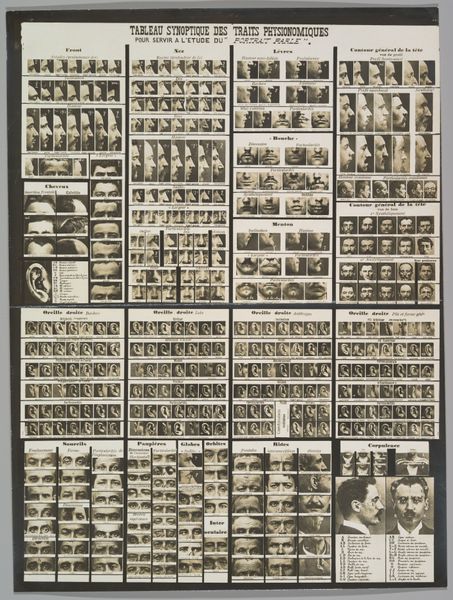
Namen en wapens in het vorstendom Gelre en het graafschap Zutphen, blad links midden 18th century
0:00
0:00
graphic-art, print, engraving
#
graphic-art
#
medieval
# print
#
geometric
#
line
#
history-painting
#
engraving
Dimensions: height 277 mm, width 365 mm
Copyright: Rijks Museum: Open Domain
This etching by Wilhelmus ten Haegh depicts coats of arms from the Duchy of Guelders and the County of Zutphen. The heraldic symbols are a fascinating study in the enduring power of emblems, reflecting deeply rooted social structures. Note the recurring motif of the lion, a symbol of courage, nobility, and royalty. The lion appears not only in these arms but can be traced back through millennia, echoing in the ancient Near East and resurfacing in medieval bestiaries. The heraldic lion is stylized, its posture and attributes prescribed by tradition, yet it retains its primal force, evoking instinctive responses. Consider the psychological weight of these symbols. They served as potent reminders of lineage, status, and identity. These emblems, like ancient memory palaces, stored complex narratives and values. Over time, these motifs evolved, adapting to new contexts while retaining a connection to their origins. This continuous metamorphosis showcases how symbols morph, echoing through the collective psyche.
Comments
No comments
Be the first to comment and join the conversation on the ultimate creative platform.
